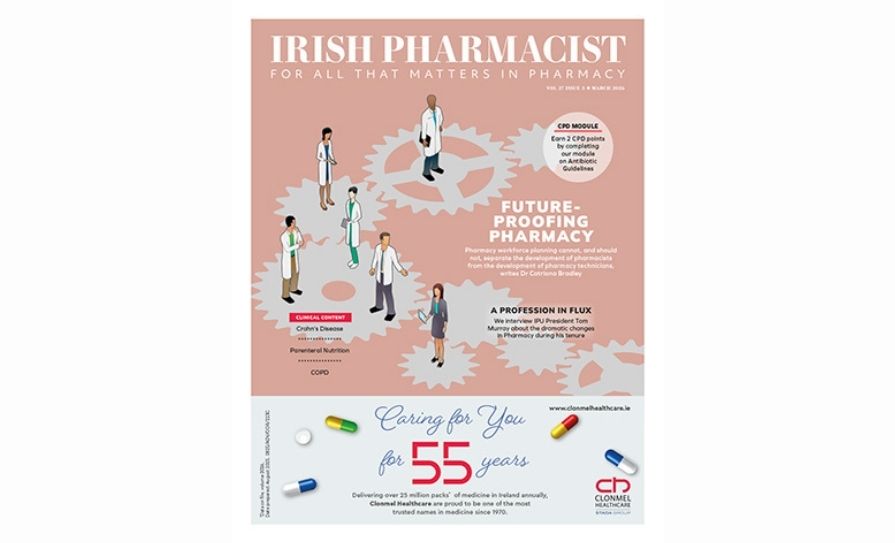Knowing the difference between these two concepts is important for pharmacists’ wellbeing, writes Fintan Moore
We all know that working in community pharmacy can be tough. There is the unrelenting requirement on pharmacists to dispense accurately regardless of fatigue, distraction or any personal stress they might be under.
Patients are mostly good people, but some of them can be demanding, unpleasant, argumentative and even aggressive. Prescribers are likewise mostly helpful to deal with, but they’re also under pressure, so responses to queries can range anywhere from getting an answer back in a few minutes to a few days, to never at all. Dealing with supply problems due to delivery errors and chronic stock shortages adds other hassle, and the HSE bureaucracy alone can create enough grief to make you change the mid-morning brew from tea to Tequila.
What keeps most of us going day after day is the fact that we genuinely care about doing what we can for patients, and that is true regardless of whether the patient is on the breadline with a medical card, or is pulling up outside in an SUV that needs one-and- a-half parking spaces.
However, while caring about people is great as a motivator for pharmacists and all other pharmacy staff, it also comes with a health warning, because it can lead to emotional fatigue. This phenomenon is obviously not unique to pharmacists and can be also seen in other healthcare workers. The advice generally is not to stop caring, but to be careful about how you care.
At the risk of simplifying the topic, it boils down to your own wellbeing staying healthier if you approach patients with a compassionate response rather than an empathetic response. In everyday usage, the terms are often used almost interchangeably, but the practical difference is important for pharmacists. Empathy involves emotionally resonating with a patient’s experiences, effectively ‘feeling with’ them, which is a humane thing to do but is ultimately draining.
Compassion, however, combines understanding and action, so it gets the pharmacist focused on the practical issues to be dealt with in order to help the situation rather than suffering through the emotional issues. Compassion maintains a professional barrier, which is protective.
I think of myself as a problem-solver rather than a carer. This might sound hard-nosed, but the first rule of first aid is to not become a victim too, and that
The first rule of first aid is to not become a victim too, and that applies equally in the pharmacy
applies equally in the pharmacy. You can’t help anybody if you’re burnt out.
Point of no return
Even though pharmacists are healthcare workers, we differ from every other stripe of healthcare worker in that we are reliant on being competent retailers to pay the bills. Granted, there are some moves away from a total dependence on buying and dispensing items, the most obvious being flu vaccinations, in which the vaccines are supplied at no cost by the HSE, and our income derives fully from providing the service. This is welcome, but in the greater scheme of retail pharmacy it’s only a sideshow in financial terms, and the real action is in stock movement and cost management.
A lot of costs are mostly or entirely outside of our control. PSI registration, insurance, accountancy fees, dispensary software, electricity, water charges, rates, rents or mortgages, packaging, etc, are all either fixed or only have scope for minimal change. Wage costs can vary a lot, but ultimately a required number of staff hours is needed per number of items dispensed, and if the level of cover is too thin, the dispensing environment gets difficult, so there’s only limited wriggle room.
The importance of ‘buy low and sell high’ becomes evident, except that we have zero control on selling price on the majority of items we dispense. The HSE dictates what they pay us on GMS, LTI, contraception, HRT, DPS over-threshold, HAA, High-Tech and Hardship, and we have been effectively nationalised, but without the benefits of public-service employment. The only thing left somewhat in our hands is how efficiently and cost-effectively we buy stock.
Unfortunately, the non-availability of many items requires us to buy in more expensively from second-line suppliers. Another problem is the inability to return surplus stock to suppliers if patients change medication.
The ‘10-day’ rule on returns introduced a few years ago was disgraceful and indefensible, but what’s also infuriating is the ever-growing list of items that are ‘non-returnable’ even within 10 days.
A simple ordering error can lead to a pharmacy being stuck with an item that will never be used and eventually be dumped. It’s a morally bankrupt policy from an environmental point of view.
Brain gain
As with all reports on medical breakthroughs, it’s worth approaching with a grain of salt, but a team of neurologists in Montreal recently reported significant improvements in the levels of acetylcholine in the brains of volunteers after 10 weeks of using ‘BrainHQ’ mental exercises for 30 minutes a day.
Acetylcholine is vital for functions like memory, declines as we age, and reduces hugely in Alzheimer’s patients. The volunteers studied were aged 65 and over, and changes in acetylcholine levels were measured using PET scans. The results showed that levels increased to an extent that reversed a decade of natural age-related decline.
It’s an impressive outcome, and given the advantages of any non- drug intervention with zero downside, it’s worth looking at and possibly recommending to patients… or maybe using it ourselves to offset
the mental wear and tear of years working in pharmacy.
The full study can be seen in JMIR Serious Games.
Fintan Moore graduated as a pharmacist in 1990 from TCD and currently runs a pharmacy in Clondalkin. His email address is: greenparkpharmacy @gmail.com.







